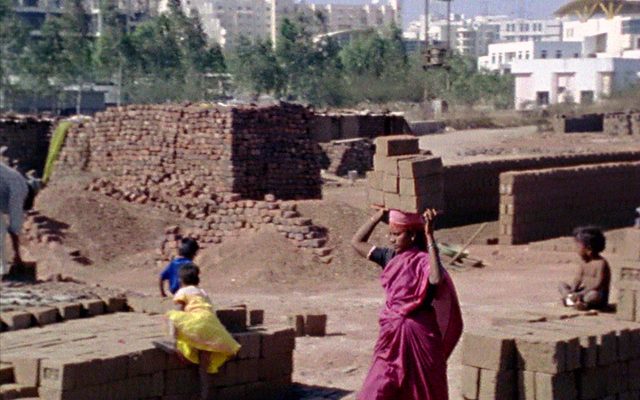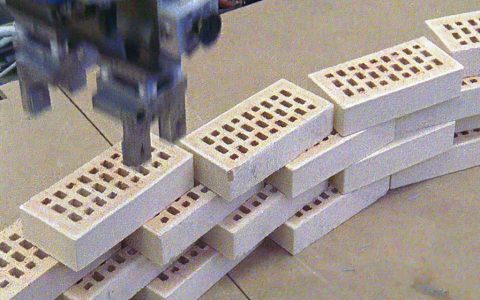28 March - 7 April

Harun Farocki was a highly influential filmmaker known for an explicitly political body of work that often focused on conditions of labour and production. For this film, Farocki filmed processes of brick production across three continents – showing those made directly by hand and those made in highly mechanised factories side-by-side whilst offering little or no commentary.
In 2011, Farocki wrote of the film: ‘I wanted to make a film about concomitance and about contemporary production on a range of different technical levels. So I looked for an object that had not changed too much in the past few thousand years. This could have been a shoe or a knife, but a brick becomes part of a building and therefore part of our environment. So the brick appears as something of a poetic object.’
As Ute Holl has said: ‘Bricks are the resonating foundations of society. Bricks are simply very long-playing records. Like records, they appear in series, but every brick is slightly different – not just another brick in the wall. Bricks create spaces, organize social relations and store knowledge about social structures. They resonate in a ways that tells us if they are any good. Bricks form the basic sound of our societies, but we haven’t yet learned to listen to them.
Farocki’s film lets our eyes and ears consider different traditions of brick production in comparison – and not in competition, not as a clash of cultures. Farocki shows us various brick production sites in their colours, movements and sounds … Brick burning, brick carrying, bricklaying, bricks on bricks, no voice-over. 20 inter-titles in 60 minutes tell us something about the temporality of brick-making processes.’
Harun Farocki (1944 – 2014) was a German filmmaker, author and lecturer in film.
Born in Neutitschein (now Nový Jičín in the Czech Republic), Farocki grew up in India and Indonesia before his family resettled in Hamburg in 1958.
Farocki was deeply influenced by Bertolt Brecht and Jean-Luc Godard, and he studied at the Deutsche Film-und- Fernsehakademie Berlin from 1966 to 1968. He began making films in the mid-1960s, and from the very beginning, they took the form of non-narrative essays on the politics of imagery. From 1974 until 1984, he edited the magazine Filmkritik.
Farocki held teaching posts in Berlin, Düsseldorf, Hamburg, Manila, Munich and Stuttgart, From 1993 to 1999, Farocki taught at the University of California, Berkeley. He later was a professor at the Academy of Fine Arts Vienna.
He made close to 120 films, including feature films, essay films and documentaries. He worked in collaboration with other filmmakers as a scriptwriter, actor and producer. In 1976 he staged Heiner Müller’s plays The Battle and Tractor together with Hanns Zischler in Basel, Switzerland.
His work has been shown in many national and international exhibitions and installations in galleries and museums.
In Comparison
2009, Germany
Directed by Harun Farocki
61 mins
16 mm film transferred to HD
SDH subtitles available
28 March – 7 April: Available to watch online
Tickets: FREE
Enjoyed the film? Please consider making a donation to support CAMPLE LINE

